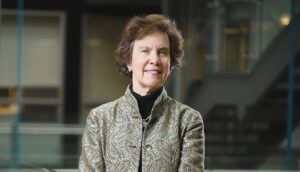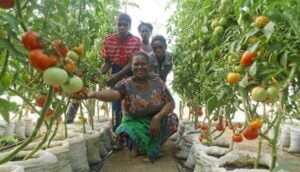The exponential growth of small, micro and medium enterprises (SMMEs) in Africa, Asia and Latin America has contributed significantly to the burgeoning green economy. Every year more and more small and green entrepreneurs are creating innovative ways to produce sustainable products and services that are having wide-reaching social and economic impacts on the world’s poorest communities.In many cases, reducing poverty is the sole driver of these enterprises; in others, it’s creating green solutions to waste, energy or climate change issues. More often than not, SMMEs generate a value-added supply chain that stimulates low income communities, through the creation of jobs and increased incomes, and improving their daily lives and access to health and education services. Unlike other businesses, profits are driven back into these social and green SMMEs to expand production and thus ensure the long term prosperity of their social enterprise and increase impact. And yet while awareness about the value of social and green enterprises and their link to reducing poverty is better than ever, finance – specifically early-stage capital – is still not forthcoming.
In 2010, the World Economic Forum highlighted the problem by launching its ‘Missing Middle Initiative’, to try to find ways to resolve the problem. The ‘missing middle’ or gap in early-stage capital for SMMEs still exists despite the emergence over the last decade of the impact investment sector, designed specifically to support social or impact enterprises. Some impact funds reward investors only when social impact targets are achieved. The general premise though is that these investments look to supply the capital needed to support enterprises which have a strong social impact. Despite the countless number of new impact investment funds available globally, the reality is that social and green enterprises are still largely overlooked and missing out on the vital early-stage capital they need to grow.
A recent analysis commissioned by SEED, a global partnership for action on sustainable development and the green economy founded by UNDP, UNEP and IUCN and hosted by adelphi research from Germany, suggests that despite the popularity and enthusiasm of impact investing, the trend suggests the funds still favour larger, more conventional and mature enterprises. It also finds that despite the nature of the investment, impact funds are less likely to direct capital in start-up enterprises. A survey by JP Morgan found 80 per cent of impact funds operate outside of the markets they invest in (primarily based in Western Europe and the US); even though 70 per cent of these impact funds invest in developing countries. Research by Acumen and Monitor Group found that only 6 out of 84 funds in Africa, were prepared to offer early stage capital to SMMEs, which more often than not require high-risk start-up finance.
Therein, according to the SEED analysis, lies the problem. Funds find it difficult to deploy financing to start-up enterprises, due to the apparent costs of supporting early-stage deals and the expected lower returns. Rainer Agster from SEED says the organisation is constantly receiving requests from SMMEs in the world’s developing countries, for assistance grants. “These enterprises experience severe constraints to their growth because only few grants are available,” he says. “Commercial loans are hard to obtain or prohibitively expensive and many of them are not yet ready for venture investors.” Since 2005, SEED through its annual SEED Award programme, has assisted 134 social and environmental enterprises from over 36 countries across Africa, Asia and Latin America. All have benefited from its grants and tailor-made business development services.
So it seems there are still many variables and uncertainties related to impact investments, and therefore the barriers facing SMMEs are far from being ameliorated. Agster from SEED says the organisation is now exploring new options on how it can further facilitate improved access to financial resources for SEED Award Winners and other like-minded enterprises. “We want to promote the growth of these enterprises and assist in the replication of successful business models to other locations by providing them with the financial and technical support required. Long term, SEED hopes to be able to assist enterprises with financing these scale-up and replication plans as well.”
Financial barriers facing SMMEs will be among the topics discussed at the SEED Africa Symposium titled “Making growth sustainable: co-creating solutions through social and green entrepreneurship” to be held on September 10-11 in Nairobi, Kenya. Over 250 entrepreneurs and business people, policy makers, and representatives from civil society and support institutions from across Africa will attend this year’s event, to share their knowledge and experience, explore partnershipsand to develop solutions to stimulate the growth of social and green entrepreneurship inthat continent. During the conference, the 2014 SEED Award Winners will also be announced and presented with their prizes. For more information about the Symposium and how to register visit: www.seedinit.org/symposium
Business Fights Poverty is a partner of the event. Business Fights Poverty members interested in attending can benefit from a special discount at registration. Just contact the SEED team(sy***********@se******.org?before registration to get a special discount code.











One Response
Perhaps SMME’s need to be linked to the value chains of major businesses to ensure economic longevity and continuous social impact to needy communities. This is where CSV makes sense. Thank you.
Regards,
David